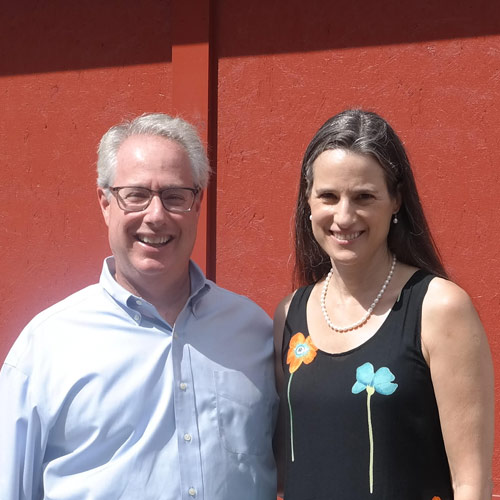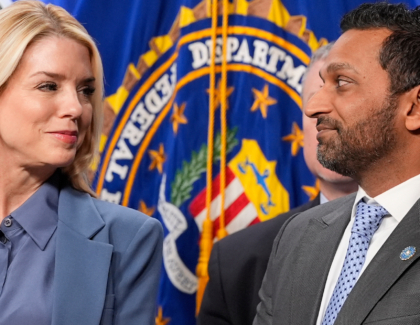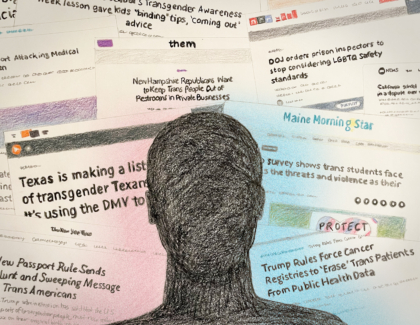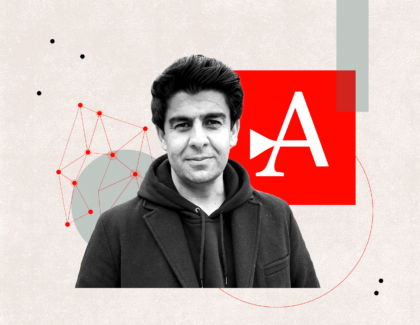Sign up for the daily CJR newsletter.
Nydia Tisdale, Georgia’s most notorious citizen journalist, crisscrosses the state with a cardboard box containing little red and blue books in the back of her 2003 Honda CRV.
The red one is Georgia’s Sunshine Laws; the blue one is Georgia Law Enforcement and the Open Records Act. Tisdale hands them out, with the earnest enthusiasm of a Jehovah’s Witness distributing The Watchtower, to elected officials in jurisdictions small and large (but mostly small), often right before public meetings.
Then—at those meetings and anywhere else a politician might hold forth in a public setting—she sets up her Sony HXR-MC5OU video camera and starts recording. Over the past five years Tisdale has made more than 800 “Nydeos,” as she calls them, chronicling the mundane machinations of local public affairs. They include council meetings and candidate forums, remarks on press freedom and Tea Party gatherings, accounts from people shot by police and ribbon-cutting ceremonies: a sort of “hyperlocal C-Span,” as Laura Paull, former citizen journalism editor at The Huffington Post, puts it.
“I enjoy doing it, and I think it’s making a difference,” says Tisdale. “I do feel a connection with other concerned citizens who are paying attention to what’s going on in local government. I feel I’m not alone.”
Tisdale posts her videos, with minimal commentary, on YouTube and Facebook, and on her site, About Forsyth, where the tagline promises “an eye-that-never-blinks on the goings-on of local government in Georgia.” Most of them will get a couple hundred views, or a couple dozen. They produce no direct revenue.
But Tisdale is most well-known, and has attracted a much larger online audience, for the occasions on which she has been blocked from filming. Her approach tests how faithfully elected officials adhere to open-meetings laws—and how ready the broader civic and political culture is to embrace a you’re-on-tape level of transparency.
It’s an approach that has won praise from open-government advocates. In 2014, Common Cause Georgia gave Tisdale its Citizen Advocate of the Year award. A year later, she was named an Open Government Hero by the nonprofit Georgia First Amendment Foundation, which produces the books Tisdale hands out. The foundation’s award recognized her battle with the Cumming City Council, where officials in 2012 blocked her from recording a public meeting.
After filing a lawsuit against the city, Tisdale secured a $200,000 settlement and a promise by the city to allow filming in the future. The state attorney general, Sam Olens, also took up her cause, and a judge levied a $12,000 fine against the city for a violation of the state’s open meeting law.
“We need more of her,” says Hollie Manheimer, the foundation’s executive director. “She shows a lot of bravery … particularly since she is filming in areas of Georgia … that are used to getting their business done without anyone paying attention.”
Sometimes, the attention is welcomed. Seanie Zappendorf, a board member of a local Republican women’s club whose events Tisdale has filmed, says the group “would never tell her no.”
“These are all open types of meetings … [and] she’s doing it to inform people,” says Zappendorf. (She adds: “I can’t tell you the quality of the film or anything like that—I’ve never seen them.”)
Other times, it’s not. In August 2014, Tisdale took her camera to a political rally at a pumpkin farm in Dawsonville, about 45 minutes north of her home in Roswell. Members of the public had been invited to the private farm to hear several top-of-the-ticket GOP candidates in that November’s election. Gov. Nathan Deal was there, and so was US Senate candidate David Perdue and Rep. Doug Collins. The state labor and insurance commissioners were on hand, too, as was Olens.
In fact, Tisdale says, Olens told her about the fine against Cumming just before the rally started. She was pleased with the news, another triumph for open government.
But shortly after the event began, Insurance Commissioner Ralph Hudgens made a disparaging remark about Democratic Senate candidate Michelle Nunn. Then Hudgens noticed Tisdale sitting in the front row, with her camera trained on him. “I don’t know why you’re videotaping,” he said. Video by Tisdale captures what happened next: A county deputy forcibly removed her from the crowd.
Later in the rally, Olens took the mic and said to the crowd:
“Let me be possibly politically incorrect here a second. If we stand for anything as a party, what are we afraid of with the lady having a camera, filming us? What are we saying here that shouldn’t be on film? What message are we sending? That because it’s private property they shouldn’t be filming? What is the harm?”
Olens, who was also honored last fall by the First Amendment Foundation, declined to comment for this story.
Over a year later, Tisdale was indicted on charges of felony obstruction of an officer, along with misdemeanor counts of obstruction and criminal trespass. She pleaded not guilty at the arraignment last month, and has filed notice of intent to sue for alleged constitutional violations.
Her attorney, Gerry Weber, says the case highlights the “David and Goliath aspect” of Tisdale’s work.
“She doesn’t have the resources, connections, and power that a mainstream journalism outlet has,” says Weber, who directed the state’s ACLU chapter from 1992 to 2009. What Tisdale does have, he adds, is skill at picking apart the minutiae of local ordinances and state laws. “Her enthusiasm and attention to detail are striking … and remarkable, from a lawyer’s perspective.”
For her part, Tisdale keeps attending public meetings and events, and posting her Nydeos online. She says she earns no money from her work as a citizen journalist, although she has been hired to film events. She receives less than $5,000 a year from PayPal donations. When professional journalists ask for permission to use her footage, she offers it free of charge.
A few weeks ago, Tisdale spoke at Weber’s media law class at Georgia State University. She tallied her victories: an apology from an official who slapped her camera at a rally, a municipality that put up a new bulletin board to display public notices.
“Why do you do it?” one of the students asked.
“I do it as a public service—to inform voters,” she said. “If you see something that’s not right, you gotta stand up for yourself. You gotta stand up for others. How could you not?”
Has America ever needed a media defender more than now? Help us by joining CJR today.







